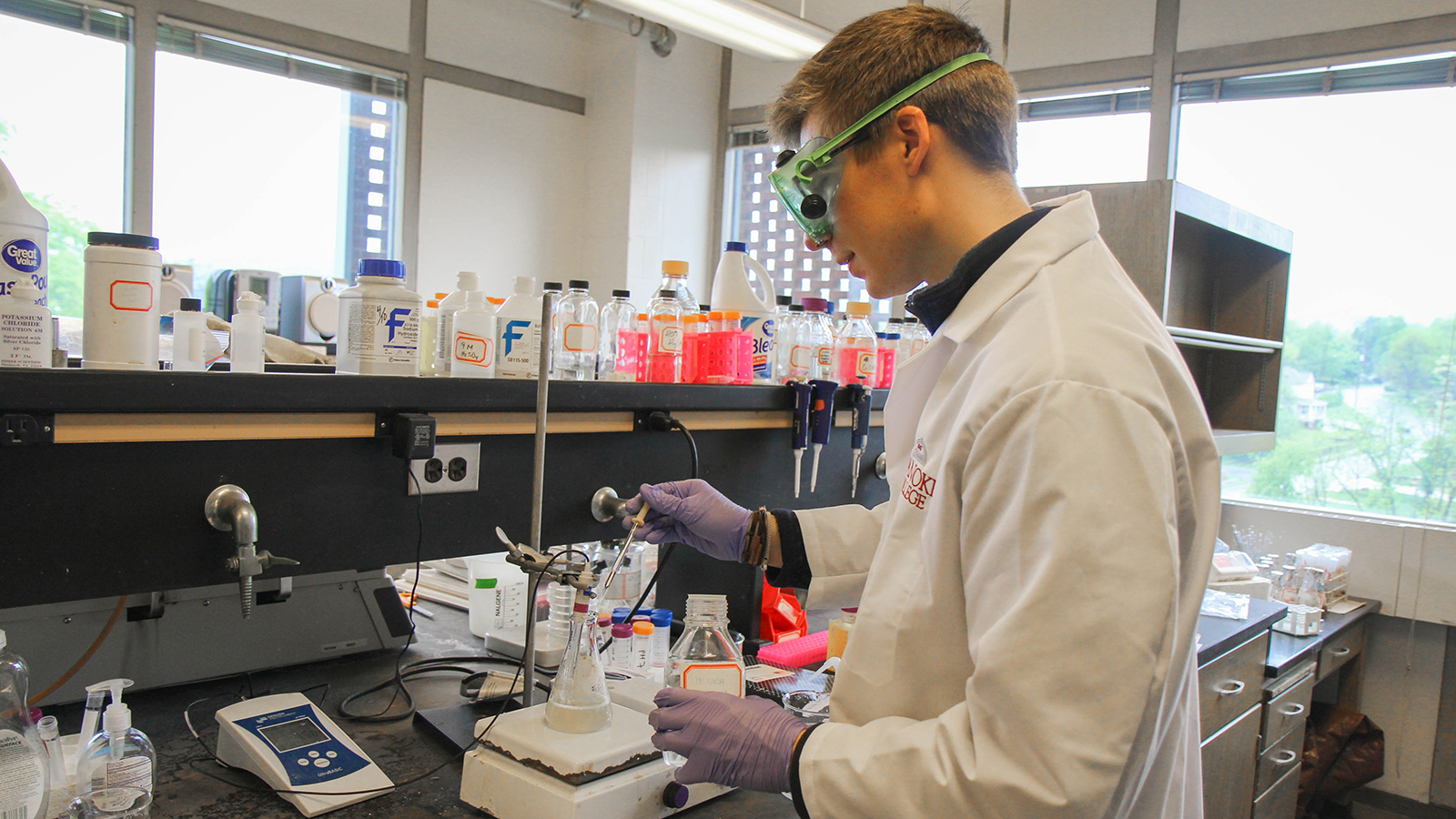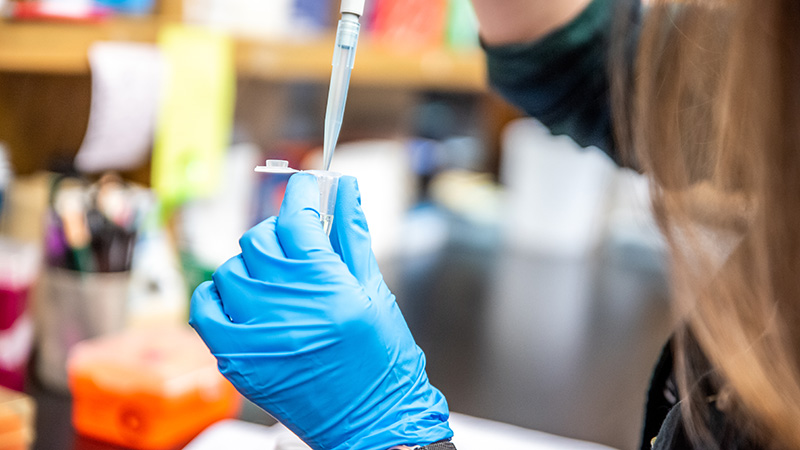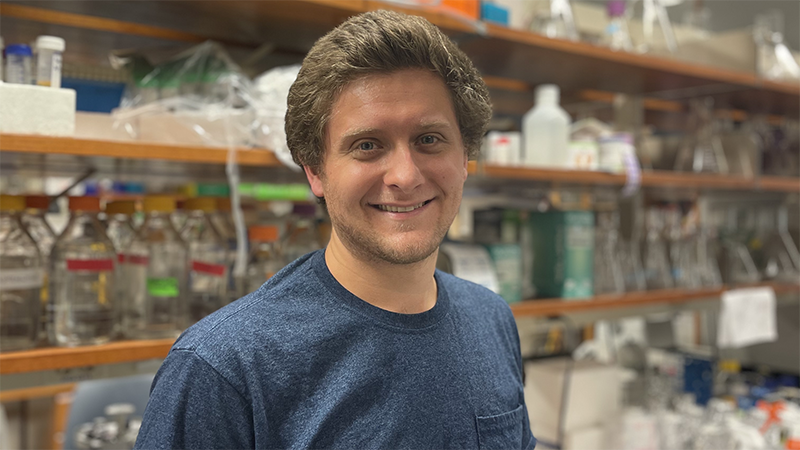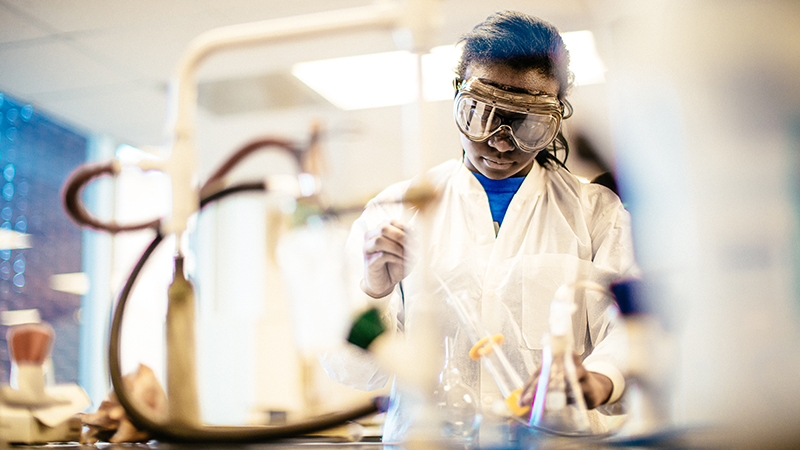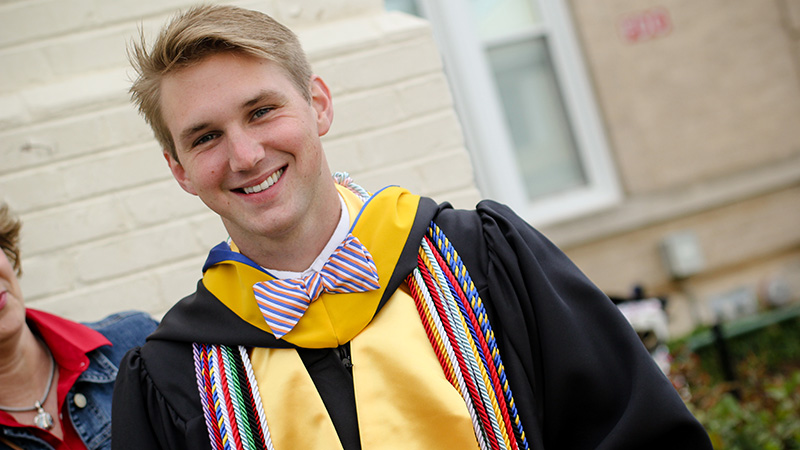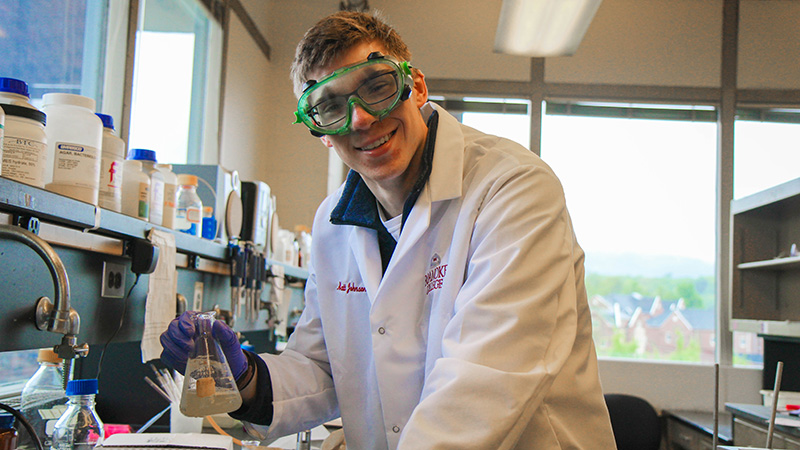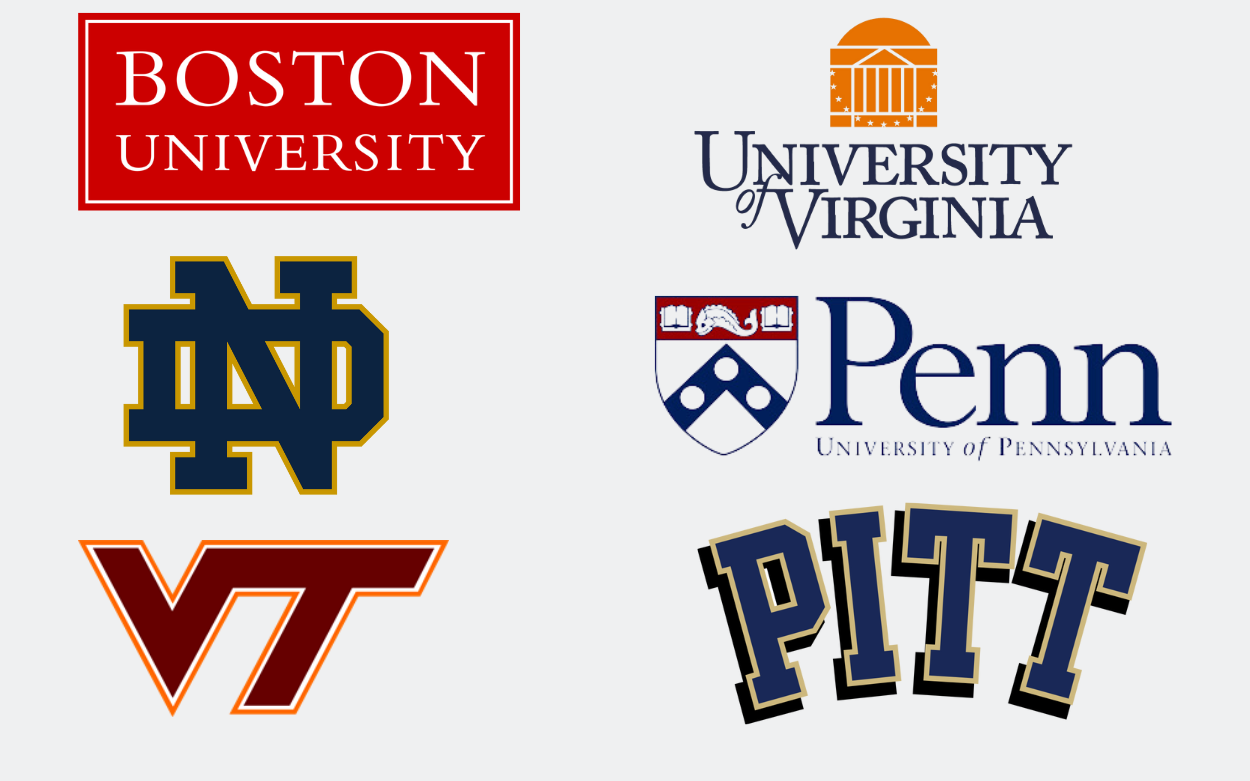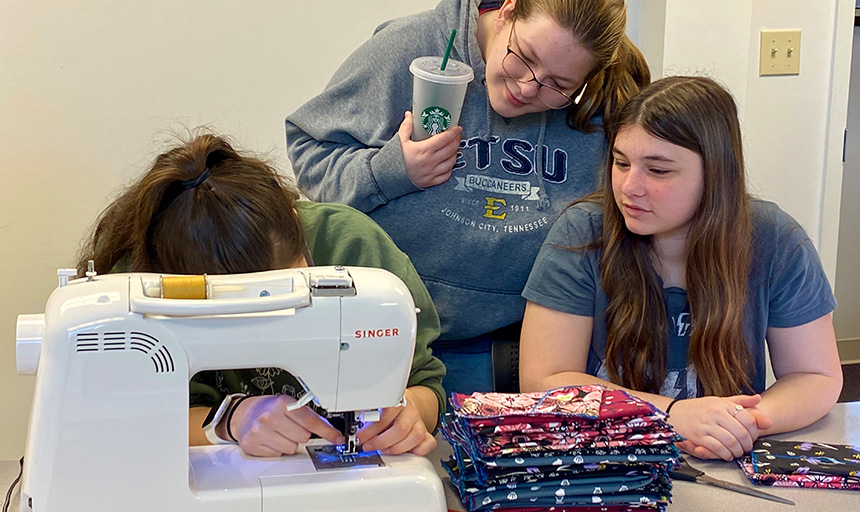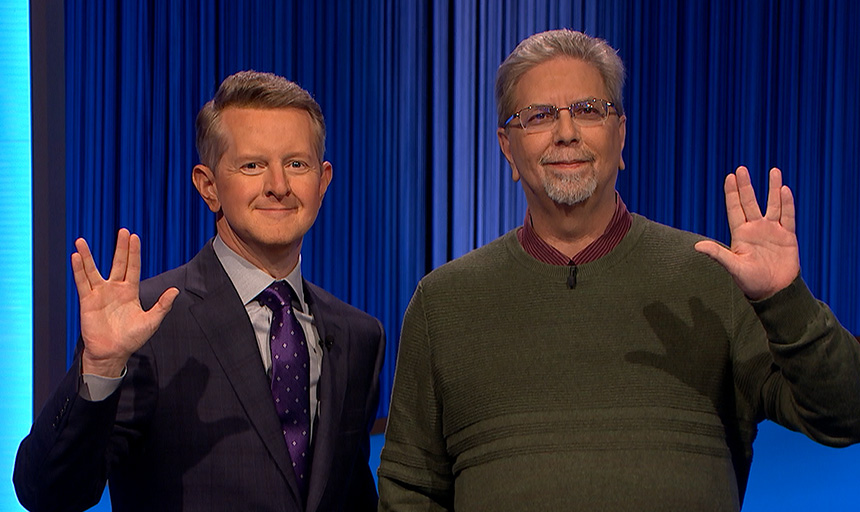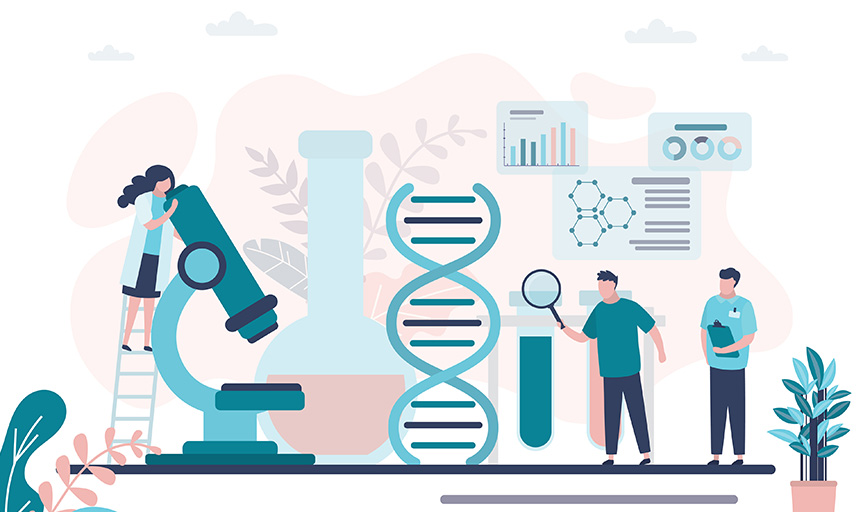Biochemistry
Avaliable as a major
Biochemistry draws on all sciences to explore the living world and causes of disease at the molecular level.
Our program is one of only a few that is accredited by the American Society for Biochemistry and Molecular Biology.
As a biochemistry student, you'll be encouraged to test your ideas through research from your very first courses, often using advanced equipment that other schools reserve exclusively for graduate students. In addition, all biochemistry faculty have active research programs. As a student, you'll gain valuable experience investigating real-world problems while working one-on-one with faculty.
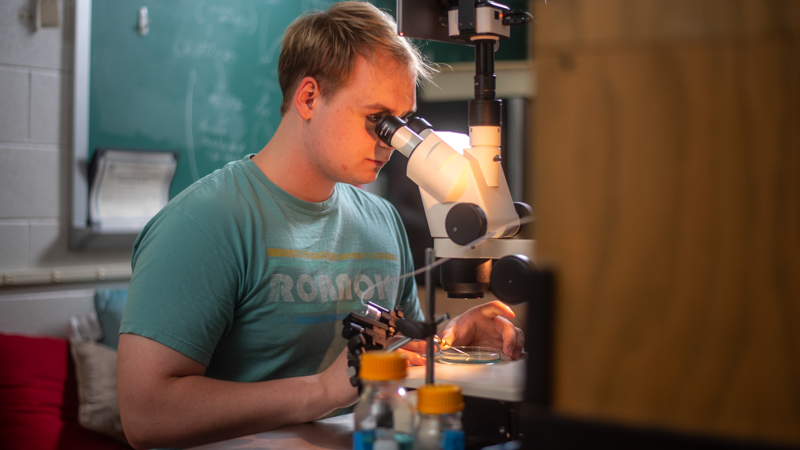
Curriculum & Courses
Research
Careers & Outcomes
Faculty
News
-
Are you a student involved in research? Are you interested sharing your research in 90 seconds with a public audience to win up to $100?
- Date:
- April 18, 2024
- Time:
- 6 - 8 p.m.
- Location:
Antrim Chapel
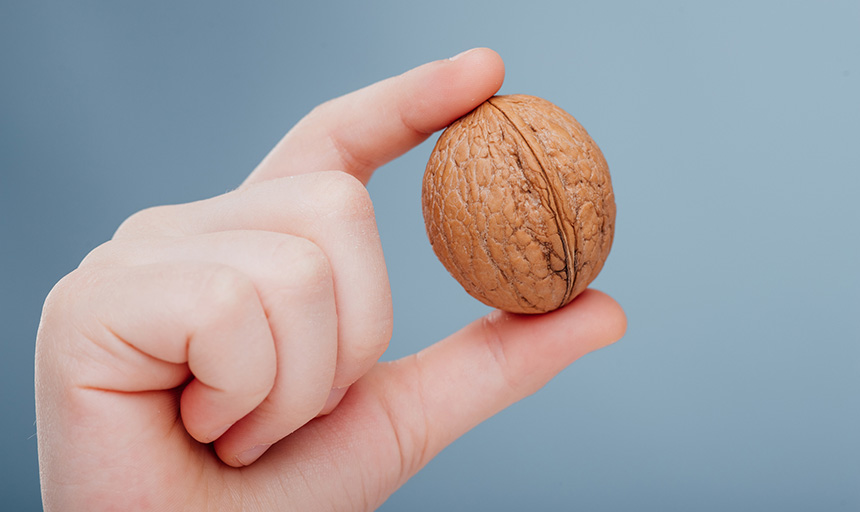
Biochemistry draws on all sciences to explore the living world and causes of disease at the molecular level.
Our program is one of only a few that is accredited by the American Society for Biochemistry and Molecular Biology.
As a biochemistry student, you'll be encouraged to test your ideas through research from your very first courses – and often using advanced equipment that other schools reserve exclusively for graduate students. In addition, all biochemistry faculty have active research programs. As a student, you'll gain valuable experience investigating real-world problems while working one-on-one with faculty.
Students majoring in this field often go on to pursue a professional degree in one of the medical fields. Others continue with graduate study in biology, chemistry or biochemistry, or enter the workforce.
We offer a major in biochemistry.
